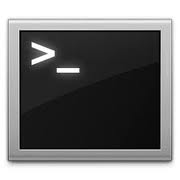In the past I’ve wrote an article about the commands du and df that can respectively give you information about the Disk Usage and the Disk Free of your Linux computer.
I personally use both of these commands a lot of times at work to check file system and/or directory, but I also understand that on a desktop with Linux you could use something more graphical to see the status of your partitions or directories, so today I’ll show you some programs that can achieve this goal: baobab, cdu, ncdu, JDiskReport and Filelight.
This is an article of mine first published on Wazi
PHP is a widely-used language, it offers general purpose scripting that is well suited for Web development. It can be embedded into HTML, and is compatible with all major operating systems such as Linux, many Unix variants, Microsoft Windows, Mac OS X, RISC OS and more.
It works with most major Web servers and it’s the scripting engine of many popular software such as Wordpess, Drupal, phpBB, mediaWiki, Joomla and Moodle just to name a few.
A thing that not everyone know is that you have different choice to run PHP on your Server, the most common option is the one used in the LAMP stack(Linux+Apache+Mysql+PHP): mod_php, this is the more common way to have php working with your web server, but is not the only one and for someone is the worst in terms of performance, other options available are PHP-FPM (FastCGI Process Manager) and PHP FastCGI, another way of running a PHP script from a webserver could be ti use the traditional CGI method but for its poor performance this method is not used anymore
In this article I’ll show you the pros and cons of these different ways to use PHP with your webserver and as first thing I’ll give you a general suggestion to speed up the performance of your PHP.
Continue reading »
In a GNU/Linux system every file or folder has some access permissions. There are three types of permissions (what allowed to do with a file of any kind, directory included):
(r)read access
(w)write access
(e)execute access
There are also other “special” permissions, but for this article the basic permissions will be enough to illustrate how umask works, and the permissions are defined for three types of users:
(U) the owner of the file
(G) the group that the owner belongs to
(O) All the other users
umask (user mask) is a command and a function in POSIX environments that sets the file mode creation mask of the current process which limits the permission modes for files and directories created by the process. A process may change the file mode creation mask with umask and the new value is inherited by child processes.
In practice with umask you can define the permissions of the new files that your process will create.
Continue reading »

In the past I’ve posted an article regarding the basic usage of grep, one of the commands that I use daily at work to search a text within multiple files, or a text string in the list of running process of a Linux server, but I’ve forgot to show you a small and useful option : How to colour the output that you get from grep to highlight the text you were searching for in a long line.
This is a small option of this powerful command but can save your eyes when searching for a particular property of a Java process that is 4 or 5 lines long.
To be honest I’ve realised this thanks to an article of Alessio, posted recently on his nice blog: http://dark-linux.net and so the following is the translation by me of his article in Italian with some small addition in examples and explanations.
In the past I’ve published some info to enhance the security of your ssh server such as 3 easy steps to strengthen your ssh server or how to use SSH for more secure browsing in public networks, today we’ll take a look at the PAM modules of GNU/Linux and in particular the module ssh and at some options that we can activate to strengthen our ssh server.
